As the population continues to grow, so does the need for supermarkets to provide essential goods and services for people to run their households with.
Since the sector is typically recession-proof and offers a consistent source of customer demand, investing in the top grocery store stocks might be a wise choice.
So, what are some grocery stocks you can buy now? Lets find out.
Best Grocery Store Stocks To Watch
Amazon (NASDAQ: AMZN)
Amazon is one of the most globally recognized names in the world economy.
Its diverse portfolio consists of a wide range of products and services, including cloud computing, online advertising, and e-commerce (which it is more commonly known for).
It was founded in 1994 and has grown to become a corporate giant, so much so that it is regarded as one of the “Big Five” American technology companies.
The company’s acquisition of Whole Foods Market grocery store in 2017 gave it a foothold in the brick-and-mortar grocery sector. It has since launched its grocery delivery service, Amazon Fresh.

While Amazon’s entry into the grocery stores market has disrupted traditional retailers, it has also created new opportunities for growth and innovation.
The company’s reputation and influence are well-founded, given its remarkable market capitalization value of $1 trillion.
Amazon generated annual revenue of $356 billion in the past year, and while that is in itself remarkable, experts still project a further 10.21% increase in net sales by 2023–to no surprise.
As of April, Amazon trades at about $97.83 on the NASDAQ.
Walmart (NASDAQ: WMT)
Walmart is another household grocery store name and the next entry on this list.
The company was established in 1962 as “Walmart Discount City” and is currently headquartered in Bentonville, Arkansas.
Walmart is one of the largest grocery retailers in the US and the world.
The corporation prides itself in being the largest private employer in the world, with over 2 million employees worldwide. It is also the largest company in the world based on revenue generated.
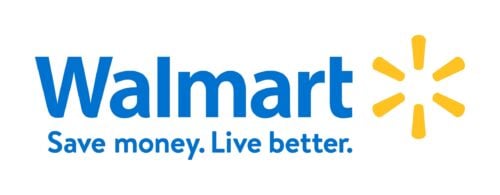
In the past year, the company saw a revenue increase of almost 7% from the previous year, amounting to approximately $611 billion.
Market analysts still predict a further 4.65% surge in the cards in 2023.
Needless to say, Walmart is a rather glaring option for investors looking to add grocery stocks to their portfolio.
Costco Wholesale Corporation (NASDAQ: COST)
Costco Wholesale Corporation is a retail company established in 1976 in a converted airplane hangar in San Diego, California.
About six years later, the first Costco warehouse was opened in Seattle, and the company set the record for being the first enterprise ever to grow from zero to $3 billion in sales in less than six years.
Costco has come a long way ever since, having 849 warehouses in 14 different countries worldwide. It offers its customers a well-curated collection of consumer staples, among other items.
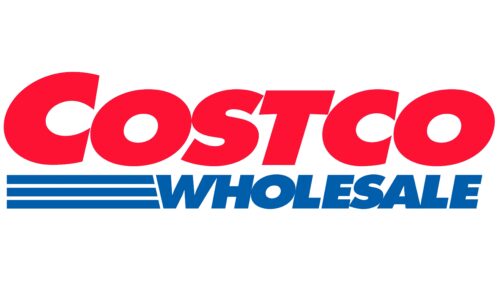
As of April, COST trades on the Nasdaq at roughly $489.35. The company boasts a market cap of about $217.02 billion.
In 2022, the company generated about $227 billion in annual revenue and was poised to experience an additional 9.6% increase in comparable sales in 2023, according to market analysts.
Costco offers its investors an annual dividend of 0.74% which amounts to a payout of $3.64 annually.
This makes it ideal for investors interested in earning passive income with grocery stocks.
Target Corporation (NYSE: TGT)
Target’s focus on providing customers with high-quality and cost-effective products has driven remarkable growth in recent years.
To maintain its competitive edge, Target has been making notable investments in the consumer staples sector, which includes expanding its product line and enhancing in-store experiences.
The company has launched new private-label brands and collaborated with renowned food brands to offer exclusive items.
Furthermore, Target’s efforts to provide same-day delivery and pickup services for grocery orders have helped it remain competitive with every other e-commerce giant.
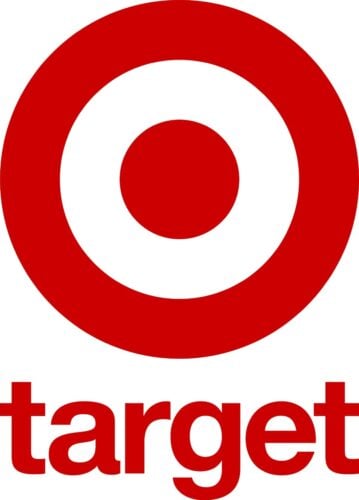
2022 was a good year for Target as the company made a $109 billion haul in annual revenue, a 2.83% increase from 2021.
According to experts, Target is set to experience another 2.39% increase in 2023.
As of April, the company’s market cap stands at $75.27 billion, offering dividends with a dividend yield of about 2.64%, translating to an annual payout of $4.32 diluted share.
Dollar General Corporation (NYSE: DG)
The American discount retailer has its headquarters located in Goodlettsville, Tennessee. Its presence is felt across the United States, with a network of over 19,000 stores.
The company was established in 1939 and diversified into the grocery store segment in 2003. Currently, Dollar General Corporation has a workforce of more than 160,000 employees.
Dollar General has invested in e-commerce, enabling customers to purchase items online for in-store pickup or delivery.

The company’s digital efforts were instrumental during the COVID-19 pandemic, so consumers have increasingly turned to online shopping.
Dollar General trades on the NYSE at roughly $216.96, with its market capitalization valued at $47.54 billion.
The company rewards its investors with a dividend yield of 1.09% and a quarterly payout of $0.59 as of April.
Dollar Tree, Inc. (NASDAQ: DLTR)
Dollar Tree, Inc. stands out as a top contender in the grocery store industry thanks to its distinctive approach to catering to financially disadvantaged customers.
The company achieves this by operating a chain of discount variety stores that offer products at different price points.
With a widespread presence in over 15,000 stores across the United States and Canada, Dollar Tree is in a good position to capitalize on the ever-rising demand for affordable groceries.
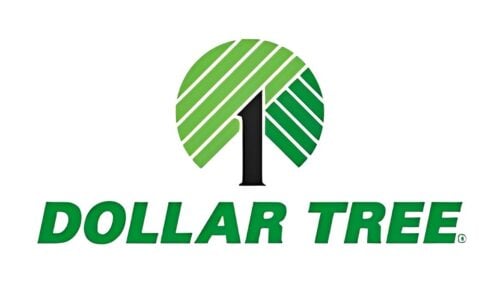
Dollar Tree currently trades at approximately $148.78, as of April, with a market capitalization of $32.89 billion. The company currently does not offer any dividend yield.
Regarding financial performance, Dollar Tree reported revenue of $26.321 billion in 2022, reflecting a 3.18% increase from the previous year.
Industry experts anticipate an even better performance in 2023, with a projected revenue growth of 6.22%.
The Krog Co. (NYSE: KR)
Kroger’s reputation for innovation and adaptability makes it an interesting option for those looking to invest in stable growth in the grocery industry.
A key advantage that Kroger has created for itself is its utilization of technology to enhance the customer experience.
Its online ordering and delivery system is a good example, allowing customers to purchase groceries conveniently from their homes.
Kroger also invests in data analytics to gain better insights into consumer behavior and optimize inventory management.
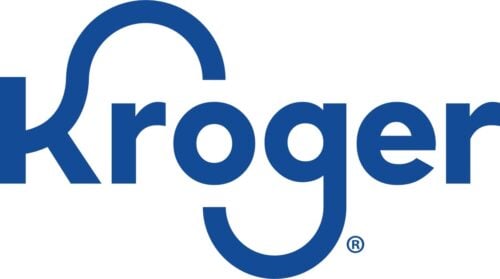
The company has also made commendable efforts to promote sustainability, recognizing its increasing importance to consumers.
Kroger has set ambitious targets to reduce its environmental impact, such as achieving zero waste in its operations by 2025 and sourcing 100% of its electricity from renewable sources by 2030.
The company’s financial strength is evidenced by its market capitalization of over $33 billion as of early 2023. Kroger currently trades at roughly $47.05 on the NYSE as of April 2023.
Are Grocery Store Stocks a Good Investment?
Grocery store stocks are considered relatively safe investments due to the stable demand for fresh food and essential household items.
And it makes sense that regardless of economic conditions, people still need to eat and purchase necessities.
This provides a consistent and stable demand for grocery stores, shielding them from the volatility experienced in other sectors like tech, pharmaceuticals, and cannabis.
These stocks typically offer attractive dividend yields, which can appeal to income-focused investors.
As mature and stable businesses, they tend to generate consistent cash flow, allowing them to reward shareholders with regular dividend payouts.
The grocery industry is also highly adaptable, responding to changing consumer preferences and incorporating emerging trends like organic products, private labels, and online shopping.
This adaptability helps grocery stores stay relevant and maintain a competitive edge.
Beyond that, the industry is experiencing significant consolidation, with more prominent players acquiring smaller competitors to increase their market share and optimize operational efficiency.
This trend is expected to continue, presenting growth opportunities for well-established companies.
With that said, grocery stocks can provide portfolio diversification. By including them in your investment mix, you can spread risk and mitigate potential losses, especially during periods of economic uncertainty.
All-in-all, grocery stocks offer a combination of stability, growth potential, and adaptability, making them an attractive option for investors seeking long-term value.
FAQs
Are Grocery Store Stocks A Good Investment During Economic Downturns?
Yes, grocery store stocks are generally considered a good investment during economic downturns due to the stable demand for consumer staples. This means that grocery store stocks can provide steady returns during economic uncertainty.
According to EuroMonitor, Walmart is the largest grocery store in the United States.

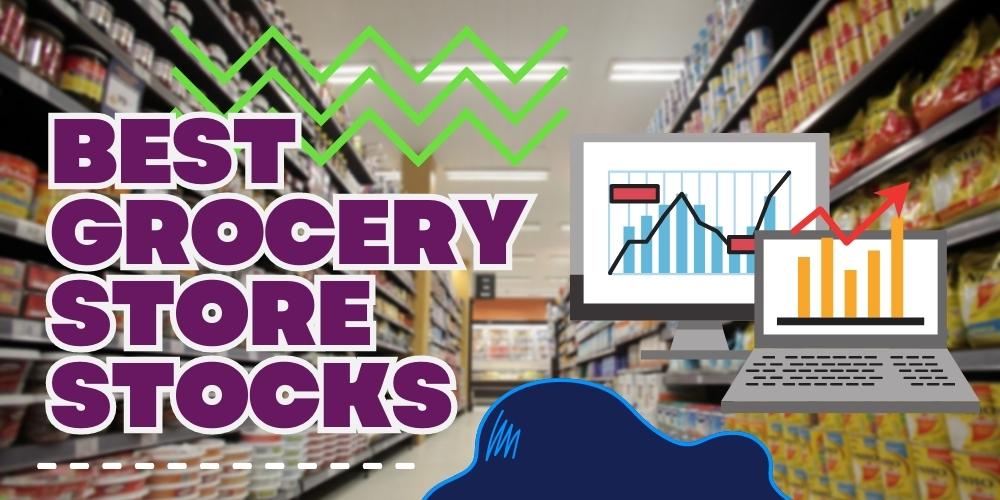
 Tags:
Tags:










